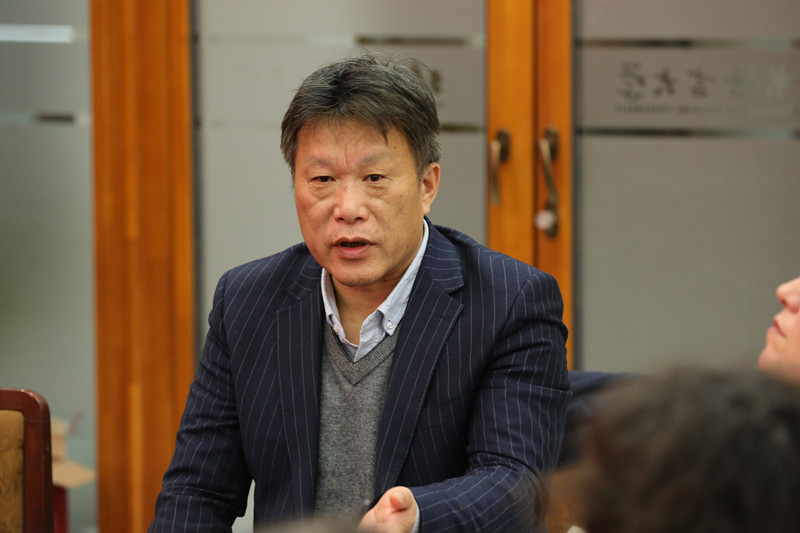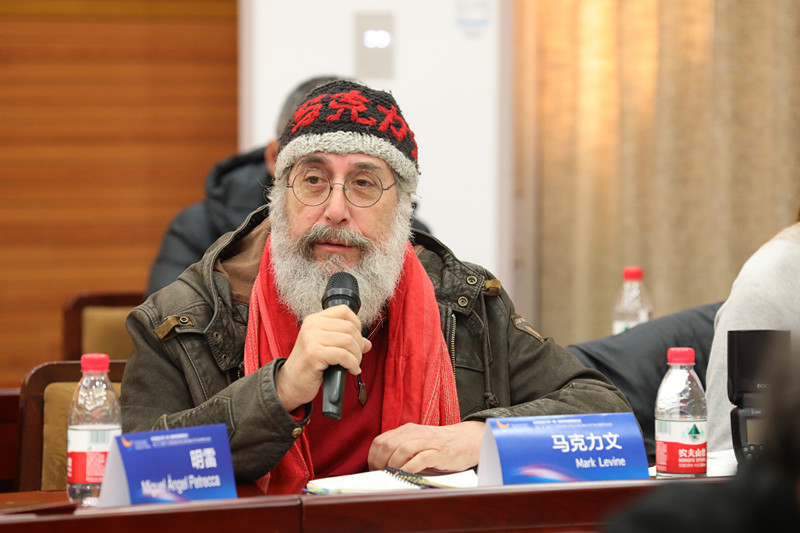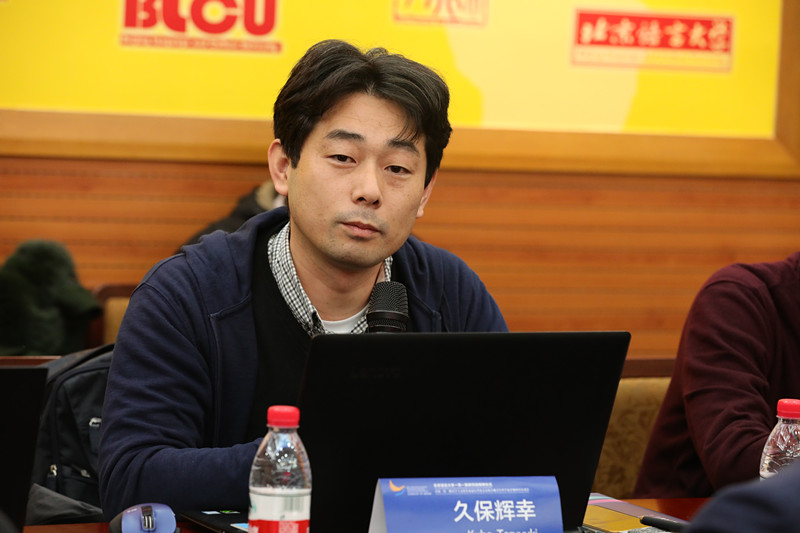
In his 15-minute-long presentation, Wang Yinquan, a professor from the Nanjing Agricultural University, introduced the history of modern Sinology. Unlike the missionary sinology notably promoted by Italian Jesuit priest Matteo Ricci (1552-1610) and Polish missionary Michal Boym (1612-1659), during the Great Era of Navigation, modern sinology free of religious influence was founded by Jean-Pierre Abel-Remusa, a French scholar from the College de France, on December 11, 1814.
"His Chinese studies laid a solid foundation for the evolution of sinology as a modern academic discipline," Wang said.

While recalling the parade at the 70th Anniversary of the founding of People's Republic of China on October 1, 2019, when 2,000 young ethnic students from the Minzu University of China (MUC) formed a square, Mark Levine, the American sinologist who taught at MUC and witnessed the whole practice, showed his appreciation of China's ethnic unity.
"The students coming from all across the land, from every Chinese nationality, study with each other and are proud of their own culture," he said while addressing the panel discussion.
He said, some overseas scholars asked him whether conflicts were inevitable in a campus where students from different ethnic groups live and study together. However, to their surprise, Levine's answer was negative. He said, insofar as he had observed, there had been no such conflicts.
"They [the students] represent the future of their country, united. Diversity will make their common future better, showing, although with differences, that all can get along," he said, "Minzu University of China is an example of building a ‘community of a shared future'."

In Japanese sinologist Teruyuki Kubo's 10-minute representation, he demonstrated a Japanese customary meal: the porridge with seven herbs. Each year, the Japanese people take it in the hope of living a longer life. However, according to Kubo, the practice was first introduced from China, where there was a story about a Chinese emperor seeking longevity. He abdicated his supreme power and turned to cultivating farmland.
However, the most interesting thing was the recipes the former emperor received from a divine to make the porridge coincided with the ingredients recorded in one of Japan's official publications on Chinese medicine in medieval times, an era marking the mutual communication between the two neighboring Asian countries.

